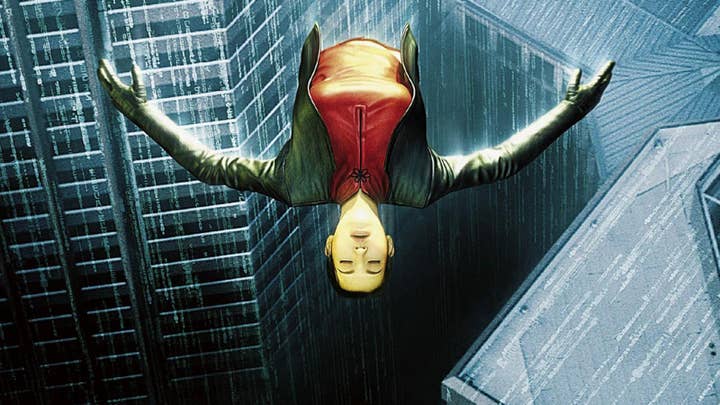Could movie shorts provide a template for funding indie games?
The Chinese Room's Andrew Crawshaw ponders the potential for experimental tie-ins around AAA blockbusters
The recent return of Blade Runner was accompanied by the usual full-blooded marketing campaign. Along with the trailers and talk show appearances, they also attempted to lure people back into the world of Blade Runner by releasing three "shorts".
Since the release of The Animatrix - a collection of ten animated shorts set in the world of The Matrix - there's been a steady supply of shorts to promote new movies. They've been used to fill the narrative gaps between films in a series, or to explore an underlying concept of the movie, or to introduce new characters.
"Some cringe at the idea of getting into bed with major IP, but plenty of developers would love the chance to play around with games known the world over"
They expand the universe, letting fans explore more of it and encouraging them to become more invested in it. And (of course) they remind the audience that a new film is coming, and pique their interest.
While the 'parent' movie is aimed at a mass market, shorts tend to be more experimental in nature. They can be used to showcase new talent - seeing how up and coming talent can cope within the world of mega budgets.
They have more freedom to experiment with storytelling, showing you the IP's universe from another angle, perhaps in the form of an advert that inhabitants of that universe would see. They're also happy to explore genres and styles that don't necessarily attract mainstream audiences, such as anime.
The purpose of movie shorts isn't primarily to make money. There are more economical ways to promote a movie than creating experimental, short-form films, so in that respect, you could say that part of the marketing budget has been set aside for philanthropy.
Here in the games industry, we've also reached the stage where it's not uncommon for development budgets and marketing spend to exceed the £100m mark. So maybe the time is right for the behemoths of our industry to become do something similar?

Imagine what some of our most daring, leftfield game developers could do with a combination of financial support and a degree of creative freedom. I'm sure some would cringe at the idea of getting into bed with major IP, but I suspect that plenty of others would love the chance to subvert, or play around with the underbelly of games that are known the world over. What's more, their profile - and their game's discoverability - would also get a major boost.
"Perhaps we'll see a Call of Duty short where you help veterans through PTSD, or a GTA short where you process the bail applications of inmates"
Perhaps we'd see a FIFA puzzle game short that combines fluid dynamics and crowd AI, allowing the player to fine tune stadium layouts and architecture, challenging them to engineer scenarios for the quickest possible movement of fans in and out of grounds.
Or a Call of Duty short where you navigate Twine-powered therapy sessions, helping veterans through their PTSD.
Or a GTA short where you process the bail applications of inmates, reading their histories, and statements from friends and victims before making your decisions.
The rise of movie shorts is, in part, a response to the shift in viewing patterns. 60-second TV trailers don't have the same impact anymore; TVs fragmented audience can perfectly time a fast-forward through any ad break nowadays. Supplementing traditional trailers with YouTube-friendly, self-contained, mini movies, is simply the studios following the audience to new platforms. But does that rule out shorts for games?
Well, we've been there before a couple of times before. Firstly, there was a (thankfully) brief period when ARGs-as-marketing leaked over from film into games, but I'm proposing new styles of games, that can afford to be daring and experimental.
A more enticing example of how this might look is PT. It was essentially a short for a Silent Hill reboot that that was never released, but the playable trailer (hence the name PT) was both widely played and well received. Its modest asset list and sandbox approach to design were definitely within the scope of an 'indie' development, both in terms of its resources and its creative execution.
I wouldn't go so far as to say there's a moral obligation for publishers to do this, but I think it's in their interests. Siphoning just a fraction of their marketing budgets could help them discover new talent and support our most creative developers.
It could help new genres to emerge. It could tempt people that rarely stray from the comforts of AAA titles to expand their horizons. And that in turn could help to grow the overall audience for games. (Plus, when it's time to release a GotY or Platinum version of the parent game, these shorts can be packaged alongside them to create special editions).
And what about the developers? For some it might be a stepping stone into a more commercially focussed future. For others it might offer financial respite, and a boost for their profile that will have benefits when they return to their own IP.
While indie developers are struggling to raise funding for their risky projects, and fighting for their games and talent to be discovered, maybe the industry itself could foster a new generation of experimental and ground-breaking games.